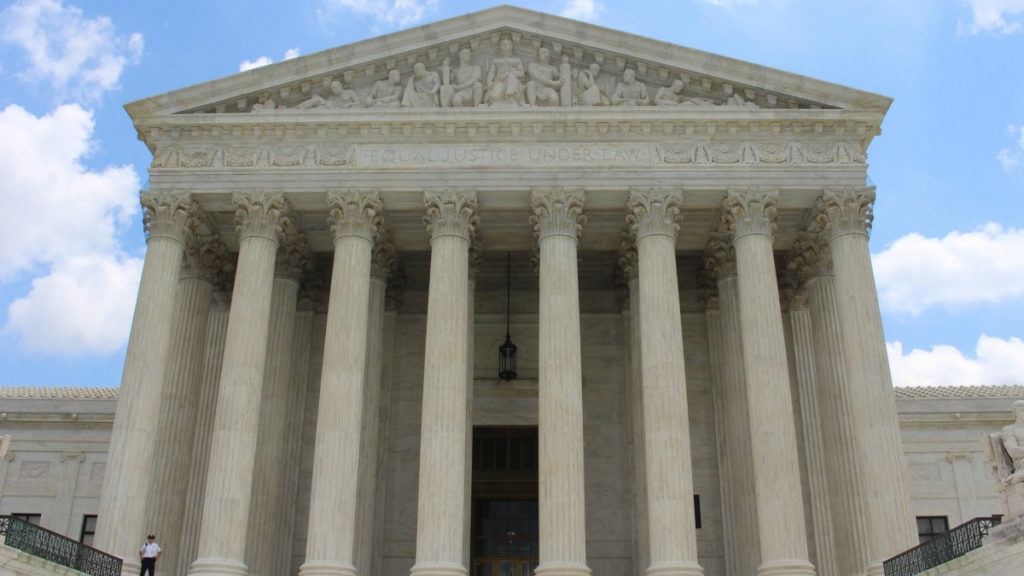Last Updated on October 15, 2023 by Michael

What is your right to privacy as a rental car driver? Unauthorized drivers in a rental car have the same right to privacy as authorized drivers, according to the Supreme Court.
Consider the cases of Terrence Byrd and Jerald Lateith Brown. Both gentlemen used rental cars that had been rented in someone else’s name to transport drugs. Each was pulled over for driving slowly in the passing lane. Neither was listed as an authorized user of their respective rental cars. And both were caught in crimes after the rental cars were searched. Mr. Byrd petitioned to have his case heard by the Supreme Court of the United States.
Ask AutoSlash for a Quote on a Cheap Car Rental
Coming up to Mr. Byrd’s case, seven U.S. Circuit Courts of Appeal had heard at least 23 cases on the issue and had come to three different rulings. Two of the seven circuits ruled that an unauthorized driver had a reasonable right to privacy; four of the seven determined an unauthorized driver did not have a reasonable right to privacy; and the final circuit came up with “it depends” when reading the same text about unreasonable search and seizure.
The right of the people to be secure in their persons, houses, papers, and effects, against unreasonable searches and seizures, shall not be violated, and no Warrants shall issue, but upon probable cause, supported by Oath or affirmation, and particularly describing the place to be searched, and the persons or things to be seized.
The Supreme Court Takes the Case
Given such inconsistent rulings, the Supreme Court took up the case.
The justices unanimously agreed with the two of seven circuits. The court ruled that an unauthorized rental car driver has a reasonable right to privacy against search. But the decision had three parts.
Court now holds, that the mere fact that a driver in lawful possession or control of a rental car is not listed on the rental agreement will not defeat his or her otherwise reasonable expectation of privacy. The Court leaves for remand two of the Government’s arguments: that one who intentionally uses a third party to procure a rental car by a fraudulent scheme for the purpose of committing a crime is no better situated than a car thief; and that probable cause justified the search in any event.
Part I: The Rental Agreement is a Contract, Not Law
The justices were clear that a rental agreement was a contract. Violating the “unauthorized driver” provision wasn’t sufficient to change any legal rights. The rental car company has remedies for unauthorized drivers and other violations of the rental car contract. It could cancel protections and use the “Do Not Rent list,” for example. But renting to a known or suspected criminal is a contractual issue, not a criminal one.
Part II: Unauthorized Drivers of Rental Cars are Not Breaking the Law
The justices took a pass on whether it was immediately a crime for someone who knew he was ineligible to rent a car to get someone else to rent a car for him. Neither Byrd nor Brown was eligible to rent a car on their own, as they didn’t meet the rental car company’s minimum requirements for drivers. The federal government claimed that Byrd should be treated the same as a car thief when it came to no expectation of privacy. The government’s claim was:
Let AutoSlash Track Your Car Rental for Price Drops
Byrd should have no greater expectation of privacy than a car thief because he intentionally used a third party as a strawman in a calculated plan to mislead the rental company from the very outset, all to aid him in committing a crime. This argument is premised on the Government’s inference that Byrd knew he would not have been able to rent the car on his own, because he would not have satisfied the rental company’s requirements based on his criminal record, and that he used Reed, who had no intention of using the car for her own purposes, to procure the car for him to transport heroin to Pittsburgh.
So why did the Supreme Court take a pass on this part of the case? Because the federal government hadn’t presented that argument at any lower court. And the government not previously presenting an argument also ties into the third part of the ruling.
Part III: Did the Officers Have Probable Cause, Anyway?
Remarkably, the federal government hadn’t made the case at the Circuit Court whether the police officers had probable cause to initiate a search after Mr. Byrd noted he had another illegal drug in the vehicle. Why? The previous court’s ruling that the unauthorized driver lacked a reasonable expectation of privacy in a rental car meant that getting a search warrant would be moot.
Also left for remand is the Government’s argument that, even if Byrd had a right to object to the search, probable cause justified it in any event. The Third Circuit did not reach this question because it concluded, as an initial matter, that Byrd lacked a reasonable expectation of privacy in the rental car.
Per the Supreme Court’s ruling, Byrd didn’t automatically lose his fourth amendment protections but there’s are still the questions as to whether there was probable cause for the search and whether an unauthorized driver should be treated the same as a criminal.
- Whether a driver who acquires a rental car under false pretense (a straw purchase) has committed a crime
- Whether there was probable cause for a search after Mr. Byrd stating he had drugs in the car.
Related:



